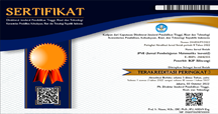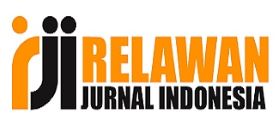PENGARUH PENDEKATAN MATEMATIS REALISTIK TERHADAP KEMAMPUAN PEMAHAMAN KONSEP MATEMATIS PESERTA DIDIK
DOI:
https://doi.org/10.22460/jpmi.v5i4.10837Keywords:
Mathematical Concept Understanding Skills, Realistic Mathematics Approach (PMR)Abstract
References
Ahyan, S., Zulkardi, & Darmawijoyo. (2014). Developing mathematics problems based on pisa level of change and relationships content. Journal on Mathematics Education, 5(1). https://doi.org/10.22342/jme.5.1.1448.47-56
Amarah, A. (2019). Peningkatan Hasil Belajar IPA Siswa Kelas V TEMA 6 Panas dan Perpindahannya dengan Menggunakan Pendekatan Konstruktivisme. Jurnal Pendidikan Tambusai, 3(1).
Campbell, D. T., Stanley, J. C., & Gage, N. L. (1963). Experimental and quasi-experimental designs in prevention research. NIDA Research Monograph, 107.
Freudenthal, H. (1972). Mathematics as an Educational Task. In Mathematics as an Educational Task. https://doi.org/10.1007/978-94-010-2903-2
Gravemeijer, K. (2004). Local Instruction Theories as Means of Support for Teachers in Reform Mathematics Education. Mathematical Thinking and Learning, 6(2). https://doi.org/10.1207/s15327833mtl0602_3
Gravemeijer, K. P. E. (1994). Developing Realistic Mathematics Education: Ontwikkelen Van Realistisch Reken/wiskundeonderwijs. , 1994. CD-[Beta] Press, 13(3).
Hamalik, O. (2006). Perencanaan Pengajaran Berdasarkan Pendekatan Sistem/BMA. In Jakarta: Bumi Aksara.
Lovat, T., Dally, K., Clement, N., & Toomey, R. (2011). Values Pedagogy and Student Achievement. In Values Pedagogy and Student Achievement. https://doi.org/10.1007/978-94-007-1563-9
Mawaddah, S., & Maryanti, R. (2016). Kemampuan Pemahaman Konsep Matematis Siswa SMP dalam Pembelajaran Menggunakan Model Penemuan Terbimbing (Discovery Learning). EDU-MAT: Jurnal Pendidikan Matematika, 4(1). https://doi.org/10.20527/edumat.v4i1.2292
Mueller, M., Yankelewitz, D., & Maher, C. (2014). Teachers Promoting Student Mathematical Reasoning. Investigations in Mathematics Learning, 7(2). https://doi.org/10.1080/24727466.2014.11790339
Nugraheni, E. A. (2013). Pengaruh Pendekatan PMRI terhadap Aktivitas dan Pemahaman Konsep Matematika Siswa SMP. Pythagoras: Jurnal Pendidikan Matematika, 8(1).
Palaniappan, A. K. (2007). Academic Achievement of Groups Formed Based on Creativity and Intelligence. The 13th International Conference on Thinking June 17–21, 2007 Norrköping, Sweden.
Rangkuti, A. N. (2015). Developing a Learning Trajectory on Fraction Topics by Using Realistic Mathematics Education Approach In Primary School. IOSR Journal of Research & Method in Education Ver. III, 5(5).
Riyanto, B., & Siroj, R. A. (2014). MENINGKATKAN KEMAMPUAN PENALARAN DAN PRESTASI MATEMATIKA DENGAN PENDEKATAN KONSTRUKTIVISME PADA SISWA SEKOLAH MENENGAH ATAS. Jurnal Pendidikan Matematika, 5(2). https://doi.org/10.22342/jpm.5.2.581.
Sanjaya, W., & Sanjaya, W. (2008). Strategi pembelajaran berorientasi standar proses pendidikan / Wina Sanjaya. 1. MODEL PEMBELAJARAN. BELAJAR DAN MENGAJAR,Strategi Pembelajaran Berorientasi Standar Proses Pendidikan / Wina Sanjaya, 2008(2008).
Simon, M. A., & Tzur, R. (2004). Explicating the Role of Mathematical Tasks in Conceptual Learning: An Elaboration of the Hypothetical Learning Trajectory. Mathematical Thinking and Learning, 6(2). https://doi.org/10.1207/s15327833mtl0602_2
Sujarweni, V. W., & Utami, L. R. (2015). SPSS untuk Penelitian. Yogyakarta. Jurnal Bisnis Dan Ekonomi (JBE), 22(1).
Sumarni, S., Santoso, B. B., & Suparman, A. R. (2017). PENGARUH MODEL PEMBELAJARAN INKUIRI TERBIMBING TERHADAP HASIL BELAJAR KOGNITIF PESERTA DIDIK DI SMA NEGERI 01 MANOKWARI. Nalar Pendidikan, 5(1).
Susanto, A. (2016). Teori Belajar dan Pembelajaran di Sekolah Dasar (Cetakan ke-4). Jakarta: Prenadamedia Group, 2.
Sutarto, H. (2017). Pendidikan Matematika Realistik Teori,Pengembangan dan Implementasinya. In Jakarta : PT Raja Grafindo Persada (Vol. 15, Issue 7).
Wijaya, A. (2012). Pendidikan Matematika Realistik Suatu Alternatif Pendekatan Pembelajaran Matematika. In Graha ilmu.
Wilda, Salwah, & Ekawati, S. (2017). Pengaruh kreativitas dan minat belajar terhadap hasil belajar matematika siswa. Pedagogy: Jurnal Pendidikan Matematika, 2(1).

















